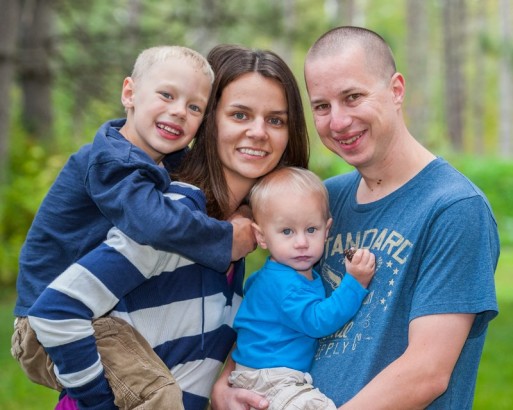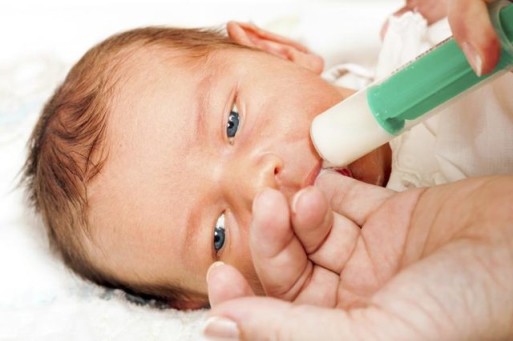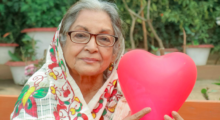
The Anderson family
(Credit: Sha~Lam Photography)
Amy Anderson of Caribou, Maine, has two living sons and several other children who were lost to miscarriage. “Lost” isn’t quite the word for it, though, because Anderson continues to have a relationship with them — particularly Bryson, who was stillborn at 20 weeks in 2010. When Bryson died, Anderson’s milk came in. Instead of binding her breasts as her doctor suggested, she pumped her milk and donated it. Eight months later, she had pumped a grand total of 92 gallons.
“As I expressed the milk, a real sense of calm descended,” she told the Philly Voice. “I felt a powerful closeness to my Bryson, which reminded me how much I loved the breastfeeding relationship I had shared with my eldest son. Pumping milk in Bryson’s memory felt so very right. All life has meaning, and my son’s life was no different. I decided to embrace his life’s purpose.”
Milk banks provide breast milk from volunteer donor mothers to babies in need, such as those who are ill or born prematurely or whose mother’s milk has not yet come in or is insufficient in quantity. (Find a milk bank in your area through the Human Milk Banking Association of North America.)

Breast milk pump
(Credit: phillyvoice.com)
In addition to raising awareness of how donated breast milk can save the lives of other newborns, Anderson has dedicated herself to changing the language of the federal Break Time For Nursing Mothers law (which currently applies only to mothers of nursing infants) to include all lactating women. She was inspired by her own experience of needing to take frequent breaks at work to express her milk, and being told by her employer, “Your baby is dead.” According to Anderson, “These words stung like a second grief. Whether or not I had a baby, I was a lactating woman with physical needs.”
Anderson’s story raises two issues regarding the attitude of much of North American society towards the transformative influence of death and the profound impact of grief. The first of these is the very limited time off that many employers grant their workers in the wake of a death in their lives. The second concerns the way in which society judges the quality and depth of personal relationships based on how those relationships are conventionally labelled or defined. In Anderson’s case, she was granted no time off work to grieve the loss of her unborn son, nor did her employer recognize the fact that her loss left her with a different set of physical and emotional needs.

Credit: livestrong.com
Even so, Anderson was able to find a way to give meaning to her loss by allowing it to feed life, as death has always done. Bryson’s death nourished countless other infants who might otherwise have died, just as the plants we eat die in order for us to go on.
During this holiday season of giving, we would all do well to remember Amy Anderson’s beautiful gift. To learn more about her journey, go to her Facebook page Donating Through Grief: Bryson’s Legacy.

 Mother Donates Breast Milk to Honor Her Stillborn Son
Mother Donates Breast Milk to Honor Her Stillborn Son



 The Healing Sound of Singing Bowls
The Healing Sound of Singing Bowls
 “Summons” by Aurora Levins Morales
“Summons” by Aurora Levins Morales














